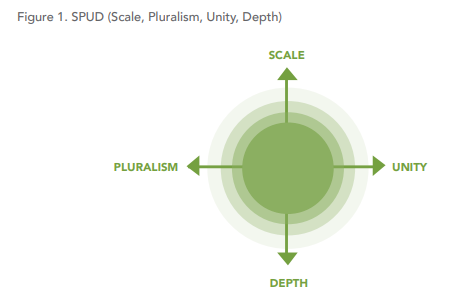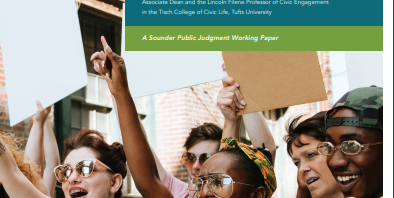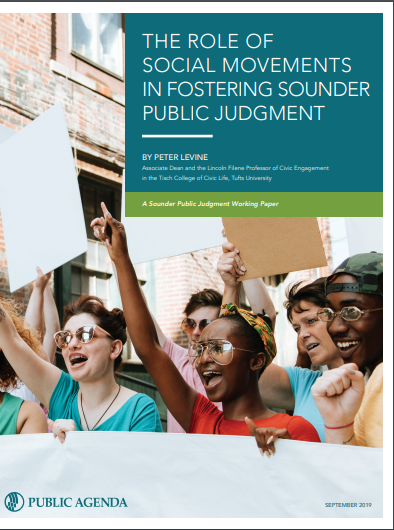In Introduction to Civic Studies, we recently discussed Lynn M. Sanders, “Against Deliberation,” Political Theory, June 1997 v.25 no. 3
Here are some illustrative arguments from her important piece:
“Appeals to deliberation, I will argue, have often been fraught with connotations of rationality, reserve, cautiousness, quietude, community, selflessness, and universalism, connotations which in fact probably undermine deliberation’s democratic claims.” (p. 2)
“Some citizens are better than others at articulating their arguments in rational, reasonable terms. Some citizens, then, appear already to be deliberating, and, given the tight link between democracy and deliberation, appear already to be acting democratically.” (p.2)
“Deliberation is a request for a certain kind of talk: rational, contained, and oriented to a shared problem” (p. 13). “Arguing that democratic discussion should be rational, moderate, and not selfish implicitly excludes public talk that is impassioned, extreme, and the product of particular interests. (p. 14)
“Prejudice and privilege do not emerge in deliberative settings as bad reasons, and they are not countered by good arguments. They are too sneaky, invisible, and pernicious for that reasonable process. So worrying about specifying what counts as a good argument, or trying to enhance reason-giving either via the formulation of better rules and procedures or by providing the time, money, and education necessary to become a responsible deliberative citizen, does not engage some of the most serious challenges to the possibility of achieving democratic deliberation. Some people might be ignored no matter how good their reasons are, no matter how skillfully they articulate them, and when this happens, democratic theory doesn’t have an answer, because one cannot counter a pernicious group dynamic with a good reason.” (p. 4)
I see these as serious concerns. Rose Marie Nierras and I found that many activists from the Global South felt them acutely. (Levine, Peter and Nierras, Rose Marie [2007] “Activists’ Views of Deliberation,” Journal of Public Deliberation: Vol. 3 : Iss. 1 , Article 4.)
But I also sense that the main problem has shifted, requiring a reevaluation of these arguments against deliberation.
It’s true that reason-giving can favor the privileged because they are good at it (or they can hire professional reason-givers, such as lawyers), and because they are basically OK with the social system in which reasons are exchanged.
But it is also a characteristic of privilege not to feel any compulsion to give reasons. It is the autocrat who says, “Because I said so.” Donald Trump is completely unwilling to give or hear reasons, and he may have developed that attitude as a result of extreme socio-economic privilege. His opponents and critics want reasons from him and are willing to give reasons for their demands.
Indeed, there is a long tradition of the people demanding reasons, and authoritarian elites trying to evade reason-giving. When we have that tradition in mind, it’s natural to equate deliberation with political equity. On the other hand, when we think about formal deliberative bodies within a stable but imperfect state–American juries, for example–we worry that deliberation and equity can conflict, because those with advantage prevail in such discussions.
As with many issues, Donald Trump reminds us of the positive case.
See also Habermas with a Whiff of Tear Gas: Nonviolent Campaigns and Deliberation in an Era of Authoritarianism; postmodernism and Trump;


